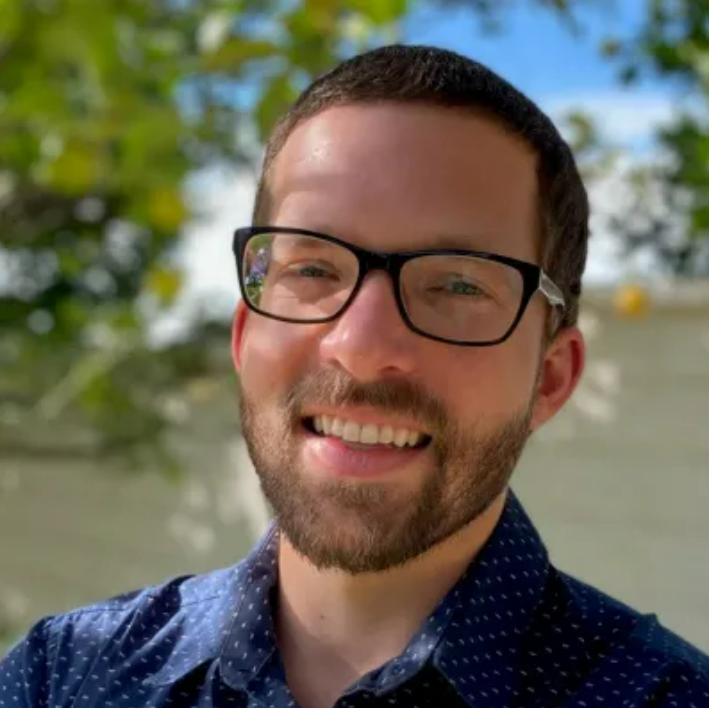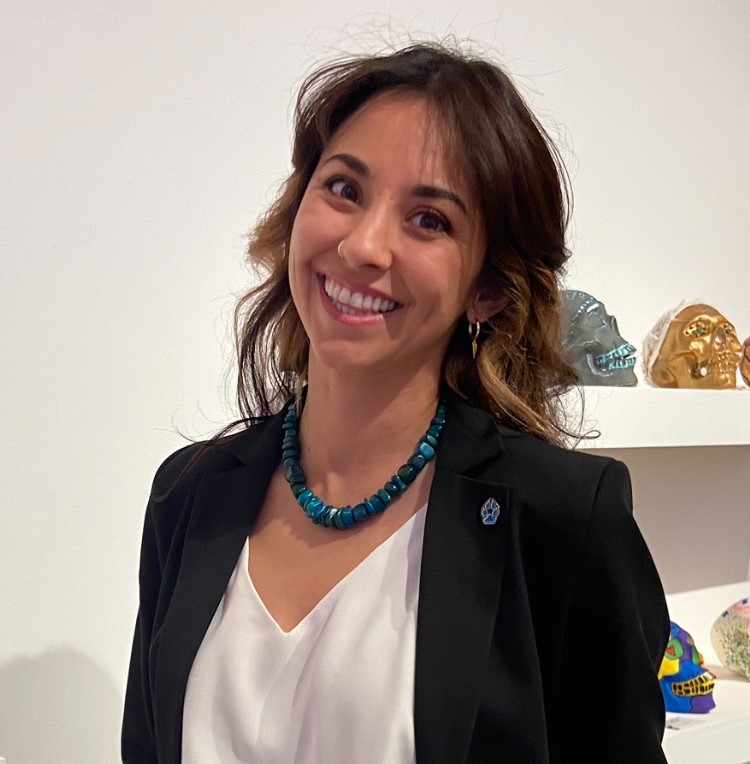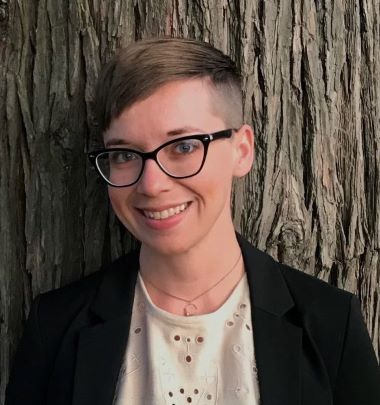About Us
Founded in 1989, the University Honors College (formerly University Honors Program pre-2025) is home to approximately 650 of CSUSB’s students. Alongside their peers, Honors students participate and serve as officers in clubs, sororities, and fraternities, they conduct research in labs across campus, they create all manner of art in studios, and they embark into the community to give back to the region that raised them. Our faculty and staff work collaboratively to govern the college with a student leadership team that shares responsibility for decision making in the life of the program.
In 2018, The University Honors College opened its facility, located in Cajon Hall, part of CSUSB’s newest residence facility, Coyote Village. There you can find classrooms, administrative offices, a computer lab, and student study and lounge spaces.
Mission and Goals
Mission
The California State University San Bernardino University Honors College develops public scholars and artists who embrace inquiry and exploration as ways to understand the complexities of the world. As a community of curiosity, the Honors College strives to empower CSUSB students to identify and pursue opportunities for educational, social, and professional development that will contribute to successful and impactful futures.
Goals
1. The University Honors College cultivates individuals who identify their own beliefs and values within an ethical framework.
2. The University Honors College fosters life-long learners who pursue knowledge through inquiry, exploration, and application;
3. The University Honors College nurtures citizens who engage with a community and work towards its success.
The program’s staff works in collaboration with students and campus personnel to develop these goals through three distinct program components: the curriculum, co-curricular programs , and a residential program.
Outcomes
Collaboration: Work collaboratively with persons from different fields of specialization in diverse, cross-disciplinary teams to analyze and/or solve applied issues and problems.
Scholarship (breadth): Demonstrate an understanding of the diverse nature of scholarship in the university by applying the tools (methodologies/content/skills) of multiple disciplines to analyze and/or solve complex issues and problems.
Inquiry (depth): Design, plan, and execute an original research or creative project in a particular discipline or interdisciplinary field that would meet professional standards in that discipline or field.
Civic Engagement: Demonstrate social consciousness, community building, and engaged civic responsibility through participation in campus and community activities and service.
Personal Development: Synthesize academic, professional, and community involvement into an action plan for post-baccalaureate aspirations, revealing personal strengths, weaknesses, and significantly changed perspectives about life experience.
Meet the Staff

Jacob Jones, PhD, Faculty Director
As director of the Honors College, Dr. Jacob Jones oversees the day-to-day operations and develops the larger strategic vision for the Honors College. Together, the director, staff, faculty and students collaborate to make the Honors College an approachable and distinguished community of scholars and life-long learners. Dr. Jones’ goal is to establish the Honors College as a place of community, belonging, artistic expression, scientific inquiry and personal growth; ultimately helping to shape future generations of leaders, professionals, and scholars.
His scholarly interests focus on neuropsychiatric symptoms among individuals with Parkinson’s disease and other neurodegenerative disorders. He has over 45 published articles and chapters in high quality journals; many with student co-authors. His research has been funded by the National Institute of Health (NIH). One project examined the association between gut-microbiome disruptions and cognitive impairment among individuals with Parkinson’s disease. The second project investigated risk factors of Alzheimer’s disease among Native elders living in urban areas. He also served as the associate director for the NIH-funded Undergraduate Research Training Initiative for Student Enhancement (U-RISE) program at CSUSB. This program aimed to increase the diversity of the biomedical research workforce by providing mentoring and training to undergraduate students from underrepresented populations.
Prior to joining the CSUSB community in 2018, Dr. Jones earned his bachelor’s degree from CSU Channel Islands. He earned his Ph.D. in Clinical Psychology from the University of Florida in 2016. He completed an internship in Neuropsychology at Brown University in 2016, and a NIH funded T32 post-doctoral fellowship in Neuropsychology at UCLA in 2018.

Brianna Deadman, Assistant Program Director, Palm Desert Campus
As Assistant Director for the Honors College at the Palm Desert Campus, Prof. Deadman works closely with the Honors College director, Dr. Jacob Jones, as well as the Honors staff and the faculty who teach in the program to collaboratively design and adapt honors curriculum. Prof. Deadman focuses particularly on assessing, planning, implementing, and evaluating the effectiveness of the program at PDC and facilitating meaningful out-of-class opportunities for Honors students--such as speakers, workshops, field trips, undergraduate research, internships, travel abroad, Honors Club and events, etc.--to enrich the Honors experience.
Prof. Deadman is an alumnus of CSUSB gaining her BA in English Literature and her MA in English Literature and Composition. In addition to giving back to the campus through her role in the Honors Program, Prof. Deadman also serves on the board of directors for the Association of Latino Faculty, Staff, and Students (ALFSS). As an ALFSS board member, Prof. Deadman helps to promote the participation of youth in higher education through scholarship funds, and works to further the personal and professional advancement of multicultural faculty, staff and students at CSUSB. Her personal research in adaptation theory, rhetoric, and gender studies--with special attention to the ways in which myth and folklore evolve and adapt over time and context--adds to the rich tapestry of CSUSB scholarship.

Brystal Nevins-Grimm, Program & Administrative Support Coordinator
Brystal was first introduced to the CSUSB University Honors College when she transferred as an undergraduate student in Fall 2021, then the University Honors Program. As a student employee, her work primarily focused on easing the transition for honors transfer students from our local community colleges. Since graduating from CSUSB with her BA in Communication & Media: Relational and Organizational Communication, in May 2023, Brystal has been thrilled to join the Honors College team as a full staff member. She hopes that sharing her experience as a CSUSB alumna, an Honors College alumna, and as a Honors Program transfer student will help honors students take advantage of the opportunities one can find in our Honors College. She hopes that they can use these opportunities to go further in their education and professional goals, to places they might not have previously expected they could reach, just as she had.
Laura Woodney, PhD, San Bernardino Campus Assistant Director
Brandon Landrum, Student Engagement Coordinator & Advisor
Faculty
First Year Experience Faculty
The Honors College's core curriculum for lower division students is taught by exceptional faculty with special expertise in the fields in which they teach. With graduate degrees in Rhetoric & Composition, Philosophy, and Communication & Media, the First Year Experience faculty devise experiences for students that provide a foundation for future learning in the Honors Program.
Brianna Deadman
-San Bernardino Campus, Palm Desert Campus
I take an interdisciplinary approach to teaching the first-year seminar courses, HON 1000, 1100, 1200, and 1300. My approach strives to make connections across all of your classes and your lives outside of the classroom. We build on the skills you learn in each class, pulling on similar threads in different ways, to deepen your knowledge, expand your perspective, and create a cohesive first-year experience.
My scholarship focuses largely on adaptation theory, rhetoric, and gender studies. Beyond my scholarship (and undoubtably entwined with it), I am an avid reader, tea drinker, Renaissance Faire go-er, camper, rock climber, animal lover, trivia fan, and history buff.
What to expect joining their class: Expect to work together as an active community of learners to explore language in use in various contexts. Our classes focus on the study and uses of written, spoken, and visual language and the ways in which we communicate effectively to construct meaning and identity, to create knowledge, mediate power, produce change, and organize and maintain social groups
Dustin Shepherd
-San Bernardino Campus
I typically teach Writing Rhetorically (HON 1100) and Constructing Knowledge (HON 1000). I have been researching film reboots and sequels in order to analyze senses of ownership and critical engagement with these properties. In addition to my academic interests/pursuits, I am also an avid bowler.
What to expect joining their class: Students should expect to engage with the material. I try to make my classroom a relaxing environment in order to help students develop and express their own ideas in a comfortable setting. Expect to challenge, expand, and question ideas about composition.
Megan Zane, PhD
-San Bernardino Campus
I typically teach for the Philosophy Department: introduction courses in general Philosophy and Ethics, and upper division courses on Philosophy of Gender and Philosophy of Language. I’m also a painter of mostly colorful abstract pieces in acrylics. I read a lot of scifi/fantasy and really enjoy resource management video games.
What to expect joining their class: Learning about critical thinking can feel very abstract and weird. So in my course, I focus on how critical thinking is a skill that we already use in ordinary everyday life. We improve this skill by examining specific tools of critical thinking and their practical applications to a wide variety of topics. Some topics we cover include: validity and deduction, technology design, science, politics and ethics, and disability rights. We have a modest amount of dense reading each week and lots of low stakes opportunities to practice thinking, writing, and communicating about the world.
Tabitha Zarate
-San Bernardino Campus
I work in the Honors Department, teaching Honors 1100 Writing Rhetorically and 1000 Constructing Knowledge. I research pop culture, comics and graphic novels, visual rhetoric, feminist and gender studies, and dabble in a few other interests. A fun fact about me is that I play a lot of D&D and video games when I am not grading papers or petting cats.
What to expect joining their class: Students should expect a warm welcome in my classes, and to help build a community dedicated to bettering themselves as writers and rhetoricians, and constructors of knowledge!
Faculty Fellows
The Honors College's Faculty Fellows are those faculty who join the University Honors College as part of their teaching in the Junior Year Interdisciplinary Inquiry Experience. Based on their submission of proposals to teach in the program, they are selected by the Faculty Senate Honors Committee in consultation with students in the University Honors College.